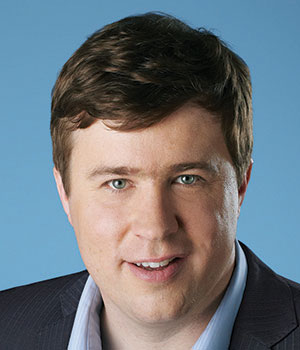The high demand for electricity that characterizes the winter peak period calls for major investments, and sometimes even the use of thermal resources that emit greenhouse gases. This conference will present the various measures and innovations used to meet the challenge of winter peak demand.
Technological Innovations for Managing the Winter Electricity Peak
Tuesday, November 21, 2023
Room 302AB - Nano One

Introduction of the conference theme
Québec enjoys an enviable position with clean energy and low rates, but must seize the opportunity to decarbonize and create wealth while meeting customer expectations. The energy transition will intensify Hydro-Québec's peak management challenges. Technological innovations and the diversification of commercial offers to encourage customers to consume less and consume at the right time will be at the heart of Hydro-Québec's strategies. These technological and commercial innovations will propel us towards a decarbonized and prosperous Québec, to meet electricity demand and offer customers a reliable, simple and affordable service.
1:55 p.m.
Prediction and Optimization Algorithms for Power Grid Peak Demand Management

Power demand management is a pressing concern in today's ever-changing energy scene. The advent of new information and communication technologies has led to the emergence of new flexibility providers, driven by distributed energy resources, which can leverage the power of their technologies in support of the power grid. This deployment makes it necessary to distribute control and prediction on new digital platforms focused on aggregation. In addition to enabling active consumer participation in load management, this distribution will offer data analysis on a distributed scale for massive exploration of multi-source grid data. The challenges will therefore be linked to the heterogeneity of data, actions and their diverging interests. To operate such large-scale, complex systems efficiently, new prediction and optimization tools capable of integrating consumers as active participants in network activities need to be developed and integrated.
2:15 p.m.
Opportunities and Challenges in Power Demand Management - Industry and Buildings
The speaker will address various crucial aspects of effective power demand management in the building and industrial sectors. Topics will include current challenges, possible solutions, and strategic considerations for optimizing electrical demand. How can we juggle the demands of comfort, logistics and productivity, while taking the load off the power grid?
2:35 p.m.
Break
2:50 p.m.
Regional Integration of Electricity Markets as a Tool for Peak Management - Opportunities and Challenges

Historically, Quebec has benefited from the non-coincidence of its consumption peaks with those of its immediate neighbors. As our neighbors work to decarbonize their own energy systems, i.e. by converting gas-fired heating systems to electricity. However, the benefits of this non-coincidence are likely to be quickly eroded. At the same time, the northeast of North America as a whole would do well to pool its energy resources more efficiently, in order to reduce the operating costs and investments required on a regional scale. In this presentation, we will see how interconnections and innovations in market mechanisms are imminently necessary to decarbonize and manage peaks at a lower cost.
3:10 p.m.
Peak Load Management: Reviewing Responsibilities to Accelerate Decarbonization

Université de Montréal et Institut de l'énergie Trottier, Polytechnique Montréal
LinkedInIn 2023, the winter peak demand in Quebec, representing over 85% of available power in Quebec, lasted only a few dozen hours. Maintaining a power reserve for less than 0.5% of the year nevertheless imposes severe constraints on Hydro-Québec, limiting the electrification of heating and justifying the continued use of natural gas in the building sector. The sharp increase in electricity production that is essential to achieving climate objectives means that we need to rethink the question of peak demand and develop innovative approaches. One such approach, currently being studied by the Institut de l'énergie Trottier [1], would leave new customers entirely responsible for managing peak demand, releasing distributors from their service obligation under certain conditions. Mr. Mousseau will present the arguments in favor of this proposal and elaborate on the next steps in their analysis.
[1] Éloïse Edom, Louis Beaumier and Normand Mousseau, Gestion de la demande de pointe d'électricité au Québec dans un contexte de décarbonation, working paper, Institut de l'énergie Trottier (2023).
3:30 p.m.
Panel Discussion
4:30 p.m.


